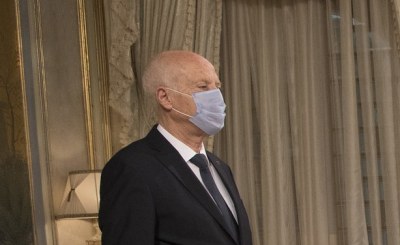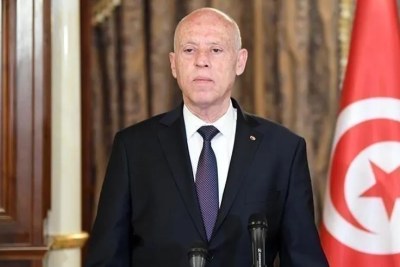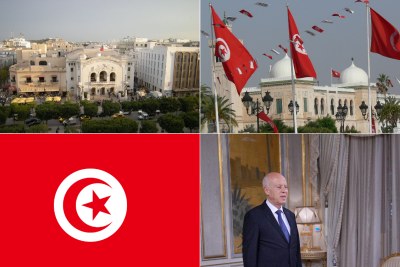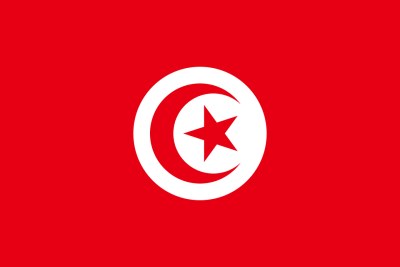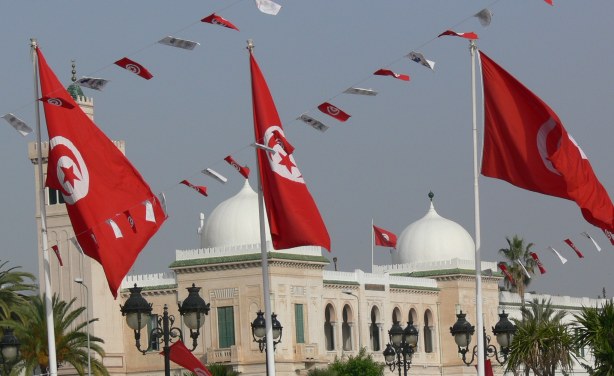-
Tunisia: Concerns Mount After Tunisia's Leader Suspends Parliament Until 2022
RFI, 14 December 2021
Opponents of Tunisian President Kais Saied on Tuesday slammed his decision to extend a months-long suspension of parliament, accusing him of dealing another blow to democratic… Read more »
-
Tunis Afrique Presse, 13 December 2021
President of the Republic Kaïs Saïed announced in a speech to the Tunisian people on Monday evening a set of measures on the eve of the celebration of the 11th… Read more »
-
Tunis Afrique Presse, 13 December 2021
President of the Republic Kaïs Saïed announced, Monday evening, in a speech to the Tunisian people, a set of measures on the eve of the celebration of the 11th… Read more »
-
Tunisia: Attayar, Ettakatol and Al Joumhouri Call Saied's Speech 'Tense' and 'Putschist'
Tunis Afrique Presse, 14 December 2021
The Democratic Current (Attayar), Ettakatol and Al Joumhouri parties, on Tuesday, called President Kais Saied's speech delivered the day before "tense". Read more »
-
Tunisia: Creation of National Rally for Salvation Announced
Tunis Afrique Presse, 14 December 2021
A number of national personalities, politicians, independents and members of the suspended parliament announced the creation of the National Rally for Salvation. Read more »
Concerns After Tunisia's Leader Suspends Parliament Until 2022
Opponents of Tunisian President Kais Saied have slammed his decision to extend the suspension of parliament, accusing him of dealing another blow to democratic process.
In July, President Saied suspended parliament and froze the legislature in a move described by the opposition as coup and a violation of the constitution.
He said Monday that parliament would remain suspended until new elections on 17 December next year, the anniversary of the start of the revolution that chased dictator Zine El Abidine Ben Ali from power.
Some politicians, lawyers, journalists and MPs critical of the president have since been arrested and jailed since Saied, who came to power in 2019, had in October moved to rule by decree, escalating fears for the only democracy to have emerged from the 2011 Arab uprisings.
Tunisia faces mounting public debt, inflation, 18 percent unemployment and stalled negotiations with the International Monetary Fund for its fourth bailout since the revolution.
But the 63-year-old president's focus has remained firmly on remaking the political system and tackling opponents -- primarily Ennahdha -- whom he he accuses of corruption.
InFocus
-
A large crowd of demonstrators rallied on November 14, 2021 at Boulevard March 20, a street leading to the premises of the House of People's Representatives in Bardo to protest ... Read more »
-
Four political parties in Tunisia have announced a coalition to oppose President Kais Saied's move to seize governing powers, < Read more »
-
Prime Minister Najla Bouden Romdhane, 63, a professor at a prestigious engineering school, is the first woman to hold that office in Tunisia. Romdhane has been asked to form a new ... Read more »
